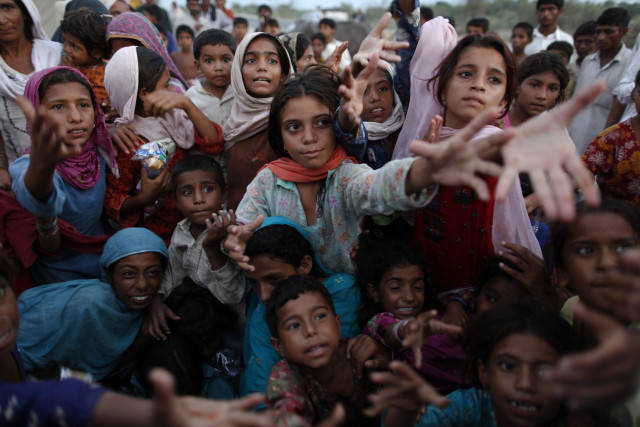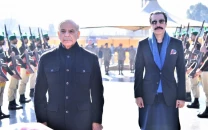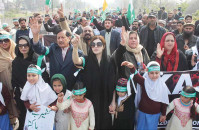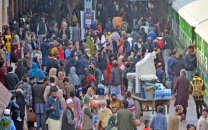Climate resilience termed key to sustainable progress
SCF organises dialogue on Sindh's development challenges

The Sindh Community Foundation (SCF) marked its 8th anniversary on Friday with a dialogue on Sindh's development pathways, bringing together academics, activists and civil society representatives under the theme "Discourse on Development Issues in Sindh: Challenges & Collaborative Avenues."
Speaking at the event, Dr Riaz Sheikh, Dean of Social Sciences at SZABIST, said peace remained central to sustainable development at both internal and regional levels. He noted that Public Sector Development Programme (PSDP) allocations had been underutilised in recent years, slowing progress. He urged policymakers to adopt people-centred approaches that could bring fairness, justice and purpose to development outcomes. SCF Executive Director Javed Hussain said the foundation's rights-based approach had directly benefited over 600,000 people across Sindh in the past 18 years. Its interventions, he added, included improving workplace conditions, promoting education, climate adaptation and expanding access to water and sanitation.
Warning that climate change was already undermining livelihoods, health and infrastructure in Sindh, he called for embedding climate resilience into all government policies. "Without this shift, gains in poverty reduction, literacy and community development risk being reversed," he cautioned.
Women's rights activist Mehnaz Rahman said civil society's contribution to strengthening governance and service delivery was rarely acknowledged at the policy level, despite its crucial role in complementing government efforts. Another activist, Shahzanz Sheedi, stressed the need for speedy implementation of laws relating to women and children.
"Legislation without action leaves vulnerable groups without meaningful protection," she remarked.
To mark the occasion, SCF presented Best Performance Awards to Humera Ali, Irshad Ahmed, Tamoor Ali Khan, Asmat Bibi and Raees Alvi for their contributions to community development in Sindh.
The dialogue concluded with a consensus that Sindh's sustainable future depends on peace, equity, climate resilience and recognition of civil society's role, with stronger collaboration between government, academia and grassroots organisations deemed essential for addressing overlapping challenges of poverty, inequality and climate change.

























COMMENTS
Comments are moderated and generally will be posted if they are on-topic and not abusive.
For more information, please see our Comments FAQ